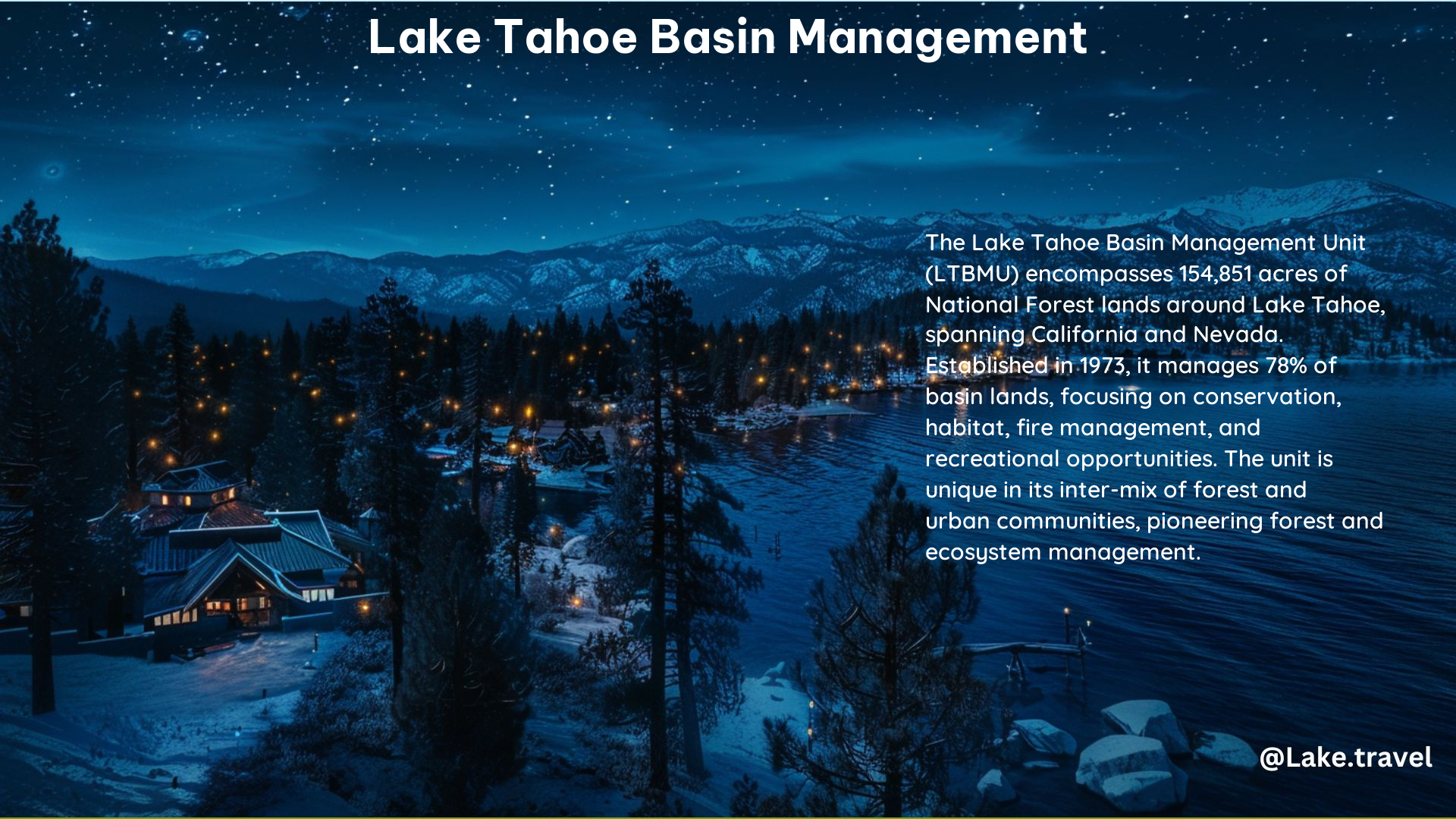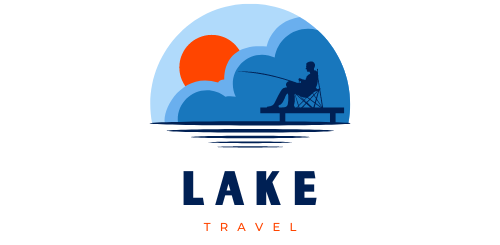The Lake Tahoe Basin Management Unit (LTBMU) is a United States National Forest that plays a crucial role in the conservation, preservation, and restoration of the stunning Lake Tahoe watershed ecosystem. Spanning across the California and Nevada state borders in the Sierra Nevada, the LTBMU encompasses an impressive 154,851 acres of National Forest system lands, ranging in altitude from 6,225 feet at lake level to 10,881 feet at Freel Peak.
Overview of the LTBMU
The LTBMU was established in 1973, consolidating basin portions of the Tahoe, Eldorado, and Toiyabe National Forests. Its primary goals are to ensure the responsible management of the Lake Tahoe watershed, while also providing and maintaining high-quality recreational opportunities for the millions of visitors and residents who flock to this breathtaking region each year.
Recreational Opportunities

The LTBMU offers a wide range of recreational activities for visitors to enjoy. Camping reservations can be made through the Recreation.gov platform, providing access to the stunning campsites within the forest. Beachgoers and picnickers can also find information on the various beaches and picnic areas through the same website.
For those seeking a more adventurous experience, the LTBMU manages the Desolation Wilderness, a popular destination for hikers and backpackers. Permits for this wilderness area can be obtained through Recreation.gov.
The Taylor Creek Visitor Center serves as a hub of information, providing visitors with details on the various recreational activities available within the LTBMU. Additionally, the Tallac Historic Site, a historic site within the forest, offers a glimpse into the region’s rich cultural heritage.
Forest Health Management
The LTBMU takes an active role in maintaining the health and resilience of the forest ecosystem. Prescribed fires are used as a management tool to protect communities and improve overall forest health. Fuelwood permits are also available for personal use, with sales starting on June 3, 2024.
Responsible Recreation
To ensure the sustainable use of the LTBMU, the Forest Service has implemented several initiatives. The Tahoe Destination Stewardship program aims to better coordinate and improve public land access and use, while the Tahoe Living With Fire campaign educates residents and visitors on preparing for wildfires.
Additionally, the Keep Tahoe Bears Wild program promotes coexistence with the region’s bear population by encouraging responsible food storage and waste management practices.
Contact and Office Information
The LTBMU’s Forest Supervisor’s Office is located at 35 College Drive, South Lake Tahoe, CA 96150, and can be reached by phone at (530) 543-2600. The office is open Monday through Friday, 8:00 a.m. to 4:30 p.m., excluding federal holidays.
For virtual assistance, visitors can contact the LTBMU by phone during business hours or through email for inquiries and assistance.
Conclusion
The Lake Tahoe Basin Management Unit is a true gem of the Sierra Nevada, responsible for the stewardship of one of the most breathtaking natural landscapes in the United States. Whether you’re seeking outdoor recreation, environmental conservation, or a deeper connection with the natural world, the LTBMU offers a wealth of opportunities for visitors to explore and appreciate the wonders of the Lake Tahoe basin.
References:
– USDA Forest Service. (n.d.). Lake Tahoe Basin Management Unit. Retrieved from https://www.fs.usda.gov/organization/Lake%20Tahoe%20Basin%20Management%20Unit
– Recreation.gov. (n.d.). Lake Tahoe Basin Management Unit, California. Retrieved from https://www.recreation.gov/camping/gateways/2025
– Lake Tahoe USFS. (n.d.). Twitter. Retrieved from https://twitter.com/laketahoeusfs?lang=en
– Wikipedia. (n.d.). Lake Tahoe Basin Management Unit. Retrieved from https://en.wikipedia.org/wiki/Lake_Tahoe_Basin_Management_Unit
– USDA Forest Service. (n.d.). Lake Tahoe Basin Mgt Unit – Home. Retrieved from https://www.fs.usda.gov/ltbmu/
